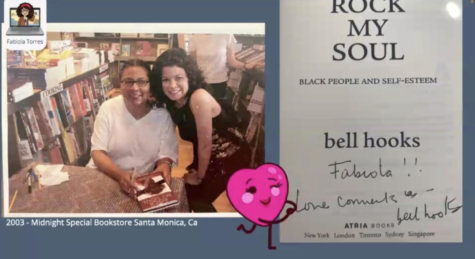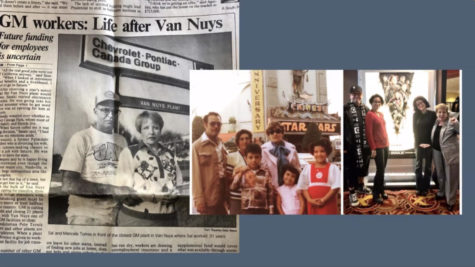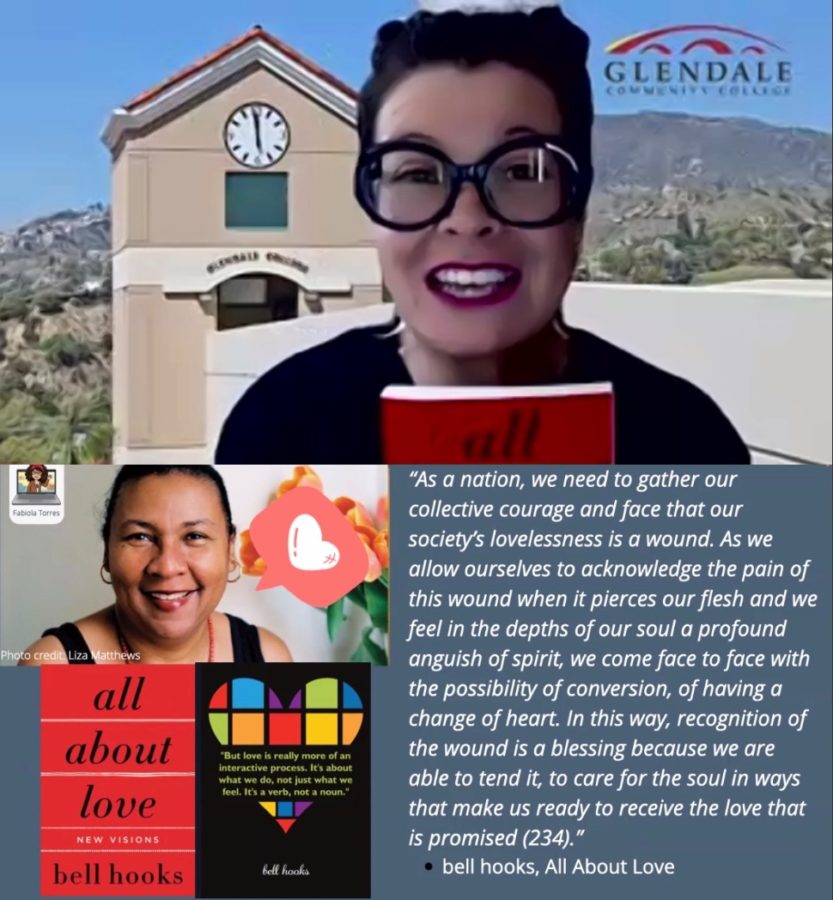Professor Fabiola Torres Honors the Legacy of bell hooks During Her Distinguished Faculty Award Lecture
Ethnic studies professor discusses the importance of equity in the classroom
“Equity is a framework that does embrace, of course, the institutional, the practice, and the personal goal of ensuring that all students succeed. And that we pay mindful attention to our students that come from disproportionately impacted communities because students like those of us from disproportionately [impacted] communities, education was not built for us,” said ethnic studies professor and department chair, Fabiola Torres, to participants attending her Leonard DeGrassi Distinguished Faculty Award lecture. On March 29, Professor Torres was awarded this prestigious award in recognition of her dedication to education and her students. The recipient delivered her lecture through Zoom titled, “Before ‘Equity’ was Trendy, There was bell hooks – Feminist, Activist, Radical Scholar” to discuss how she has been inspired by bell hooks and how this inspiration has contributed to her teaching philosophy and passion for equity. She explained the importance of reflecting on current practices in the institution of education and having the courage to deviate from the status quo to create a more equitable society through the education system.
In describing her relationship to the term “feminism” and how she connected to bell hooks, Professor Torres discussed two key books, which were titled Sisters of the Yam and Ain’t I a Woman. “These are the two books that bell hooks opened my eyes to a new way of looking at feminism,” said Professor Torres. “When I first started hearing the word ‘feminism’ I equated the word ‘feminism’ to . . . rich, white, educated, abled, American, English-speaking women, and I didn’t connect with feminism.” Professor Torres further explained how reading Ain’t I a Woman showed her why bell hooks also did not feel connected to the women’s movement that took place in the early 1970s. “It was her explanation of resilience of black women that knew how to be resilient despite racism, sexism, patriarchy, misogyny, and when she spoke about such resilience, that is where I connected with her,” stated Professor Torres.

Further expressing her connection to bell hooks, Professor Torres recounted her memorable experience with the prominent activist. “She was speaking in front of a room full of people. I was in the front, and … I went to her to have her sign my book. She said to me ‘Oh I’m so happy to see you. I always get nervous in front of people, and I only like to view some people in the audience that I feel I can connect with, and I connected with you.’ So I’ll always remember that,” said Professor Torres.
In her pursuit to make her own classroom more equitable, Professor Torres has been rereading bell hooks’s books and other material relating to different educational practices during the pandemic in order to honor bell hooks’s legacy through the methodology she uses in the classroom. Covering a number of bell hooks’s values, Professor Torres discussed numerous ideas from bell hooks that contributed to her teaching ideology. Discussing the book, All About Love, Professor Torres expressed her desire to translate the love that bell hooks describes to her own students. She further spoke about the need for professors to be vulnerable and open with students to cultivate a relationship of trust. She discussed the power of love in connecting people and in education. She further highlighted how bell hooks’s book, Teaching to Transgress, was already calling upon society to cultivate greater equity in educational institutions. She continued to honor bell hooks’s life by having participants share their own thank you messages to hooks as well as quotes from her books that inspired them.

Professor Torres highlighted another source of inspiration for her, which was her family. “I wouldn’t be here if it wasn’t for the ethics that my parents taught me,” said Professor Torres. “My parents taught me to work hard … that work was a blessing.” Both of Professor Torres’s parents taught her values that inspired her dedication to teaching, work ethic, and life philosophy. She tells the audience about one conversation with her father that particularly stood out to her. “Any time I feel exhausted I keep thinking of my father saying to me, ‘You didn’t get into this job because it was going to be easy,’” said Professor Torres. She also showed a video of her family and the lessons that she learned from her mother and father. The video described how her father worked at General Motors and how her mother creatively found ways to save money in order to provide for their family. Her mother’s method of saving money taught her how to distinguish between needs versus wants, save money, and understand the value of money. Professor Torres showed how her mother, through her everyday practices and values, challenged the social, economic, and political institutions.
Through her discussion on bell hooks and her parents, Professor Torres emphasized the importance of encouraging disruption to create change. She highlighted how fostering the best learning for the students would take hard work and reflection on current practices. “We didn’t get into this work because it was going to be easy. If we really want transformation, it takes work,” said Professor Torres to close her lecture.
To see the names of previous Leonard DeGrassi Distinguished Faculty Award winners refer to: https://www.glendale.edu/about-gcc/faculty-and-staff/employee-recognitions/distinguished-faculty-award-dr-william-l-parker-exceptional-service-award/recipients-list
Jacqueline Kamei can be reached at [email protected].


